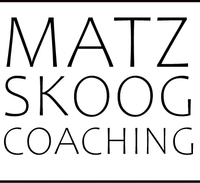If you think you have stopped learning just because you have become middle-aged you are wrong. Learning is part of the evolutionary process and it goes on throughout life whether you know it or not. Although there is no reliable research demonstrating that brain cells continue to regenerate until we die there is ample evidence to show that by keeping your mind keen you may be able to delay the onset of conditions such as dementia or Alzheimer’s disease. By maintaining a reading habit it is possible with relatively little effort to exercise your cerebral capacities effectively and continue to learn new, often sophisticated skills.
Learning such skills and acquiring knowledge is tremendously satisfying. And I would argue that the older you get the more fulfilling it becomes; perhaps because discovering later in life that learning new things is possible makes personal development all the more rewarding. Take me for instance – age 60 – writing an article about learning; because as a life coach specializing in working with men it is important that I develop skill as a writer in order to share my thoughts on the challenges of being a man in his middle-years. As I sit here, tapping away on my keyboard and making revisions to the text and then making revisions to the revisions, I’m having a great time.
The worst thing you can do to your mental health, and therefore probably also to your life expectancy as well, is to stop being curious about the world and come to think that you can no longer learn. I would suggest the most significant difference between you and a three year old who is learning new life skills on a daily basis is your belief in your ability to learn. Maybe this is because your willingness to try to learn has diminished.
Even if your preferred area of improvement is something practical and physical, one of the most tried-and-tested routs to developing any new skill is, along with practice, reading. Some of the busiest people in the world dedicate a surprising amount of time in their day-to-day reading. A quick search of the Internet throws up information about the very impressive reading habits of people like Barack Obama, Bill Gates and Richard Branson. The objective is not necessarily to join the ranks of the super-successful but if they can manage to find the time there’s no reason why you can’t.
Maintaining a reading habit that goes beyond the latest Jack Reacher novel does require both focus and discipline. For a start you have to be honest with yourself. How often do you choose watching television over reading a book? Saying that you’re too tired, too busy or not having enough time in the day to read is simply no excuse at all! Of course you have time to read if you chose to make this a priority. We all have the same number of hours available during the day. The only difference is how we chose to spend our free time.
For men of a certain age reading in bed late at night is probably not the best strategy if you want to absorb anything more demanding than the latest thriller or whodunit. Let’s face it, within minutes of going to bed, we all tend to end up snoring away, with the reading light still on, and the book if not on our face, then an inch or two from it, so you need to find other times in your day that you dedicate to constructive reading. Commuting to work by train, tube or bus, for instance, is an excellent opportunity to read rather than spending your time travelling staring at your mobile phone.
There’s no need to punish yourself by reading really boring or heavy stuff but try to cultivate some intellectual resilience and willpower. Pick subjects that not only interest you but that will extend your mental capacities to some degree. If everything you read stretched you by, say, ten or even five percent, the accumulated development you would achieve over a relatively short period of time would be remarkable.
Be disciplined. Perhaps set a timer to ensure you fit in 30 minutes of reading every day. Most people can read 20 pages in 30 minutes. If you genuinely do dislike reading cut it down to 15 minutes but time will pass quicker than you think and the chances are that you will soon change you opinion about reading. Curiously, most children are avid readers, a habit that many of us lose as we grow older. If that’s you, you may want to start by checking out How To Read A Book (Mortimer Adler, 1940). It is still the definitive work on how to read effectively for both pleasure and study.
Sustaining an ability to pick up new skills, retaining facts and pinpointing information pertinent to you is not only good for keeping your mind keen and feeling youthful and motivated, it is increasingly becoming essential to survival in our society. The rate of growth in the 21st century is exponential and at the speed of progress today the development humanity might experience over the next century could, according to some sources, be equivalent to as much as the previous 20,000 years of social development. The upshot is that he who cannot keep up will lose out.
It is true that none of us know how many days, weeks, months or years we have left on Earth, but all of us have the choice of what we do with NOW. Would it not be much more satisfying spending the rest of your time developing in some way and feeling proud about your ongoing achievements rather than just waiting for it all to finish? You may not be able to follow everything that happens in the world, but trying to keep up with that which is relevant to your life will keep you sharp and make you feel better about yourself. Good luck!

